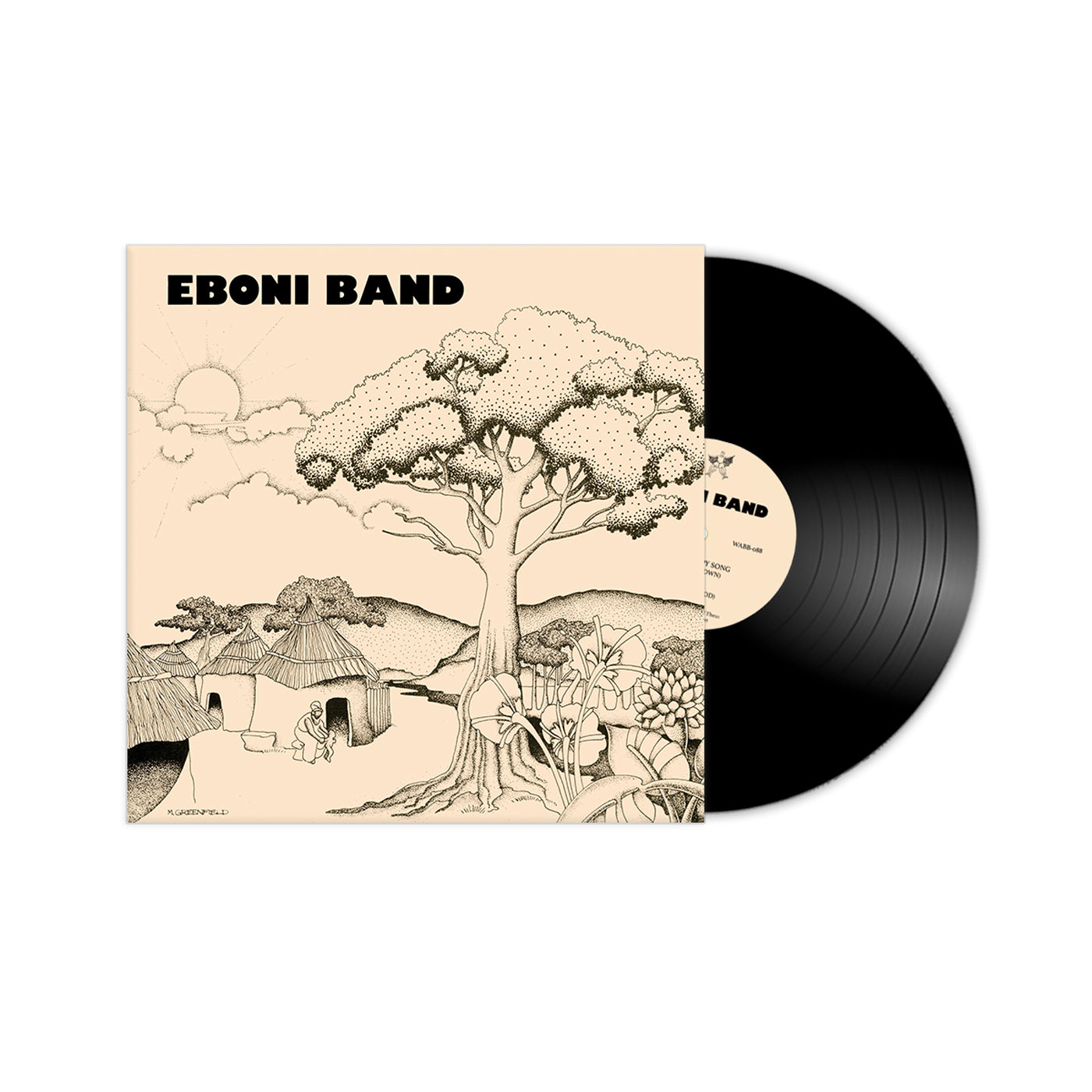Remastered reissue of Eboni Band's sole album from 1980. Produced by Art Stewart (Marvin Gaye, Rick James, Diana Ross).
As its name suggests, Eboni Band was an ersatz supergroup. Pulled together by arranger and bassist Greg Middleton (The Checkmates Ltd, Marlena Shaw) at the suggestion of Marvin Gaye producer Art Stewart, the musicians comprised of the four musical groups signed to the Ivory Coast-based Eboni Records (Mamadou Doumbia, Gun Morgan, Amadou Doukoure & Abdoulaye Soumare and Lamine Konte & Fode Drame) alongside a handpicked collection of mint Motown session men, including James Brown’s bandleader Fred Wesley, Nolan Smith (Marvin Gaye, Stevie Wonder), Ernie Fields, Jr (Rick James, Marvin Gaye), and Quentin Dennard (Aretha Franklin, BB King).
Conceived by Motown studios alumni Gerald Theus, Eboni Records formed in the late 1970s with a vision of applying the Berry Gordy formula to the West African market. But, as the group’s vocalist and producer Abdoulaye Soumare recalls, the Eboni Band project’s origin was more akin to kismet than assembly line efficiency. Returning to the States in the wake of a failed session with legendary Afro-rock drummer Remi Kabaka in Nigeria, Soumare found himself on an unexpected layover in Abidjan. While killing time, he recalled that Theus had recently moved to the economic capital of the Ivory Coast to set up shop and, on a lark, gave his old Motown pal a call. By the end of the day, Theus had not only convinced Soumare to stick around Abidjan, but to immediately begin work on a series of four concurrent recordings by the label’s roster of local talent.
The vision was simple: Soumare would record the albums in Los Angeles, applying American production techniques to the roster’s inherently West African musical sensibility. To execute this musical feat, Soumare drafted Art Stewart, his mentor at Motown studios and the architect of Marvin Gaye’s “Got To Give It Up” and Rick James’ breakthrough album, Come Get It!
Sessions took place in 1980 at Jennifudy and Sierra Pacific Studios in Los Angeles. Despite the occasional musical timing and language discrepancies. Stewart recalls the West African and American musicians getting on like a house on fire.
This cross-cultural bonhomie comes through loud and clear on Eboni Band, the groovy musical culmination of the sessions which ended up becoming the lead release for the set. Seamlessly interspersing lyrics in Wolof and English, tracks such as opener “Sing A Happy Song (Shake It Down),” the punchy, sensual “Desire,” and the theatrical “Mogofingeou-Sopeunte (Get Together)” are rooted in the deep funky pocket of the era, while country-infused album closer “I Love All” and the enchanting “Fasso (The Motherhood)” highlight the subtle beauty of the West African instrumentation and slithering melodic interplay while masterfully eschewing the traditionalism that has come to define “World Music.”
As conceived by Stewart, each song on Eboni band contains musical and cultural multitudes; an evolving feedback of the very history of the form itself. But in true crate digger fashion, Eboni Band is best listened to devoid of context. These songs, both disparate and wholly singular, tell the story of a musical moment ready for a modern spotlight.
Following its African release, Stewart offered the album to Motown for stateside distribution. At the time, the label felt that African music was not of interest to American audiences and passed on the project. 40 years later, at a moment of Black music’s epoch, it has arrived as an exemplar of unity for all diasporic people. It’s time to dig it.

